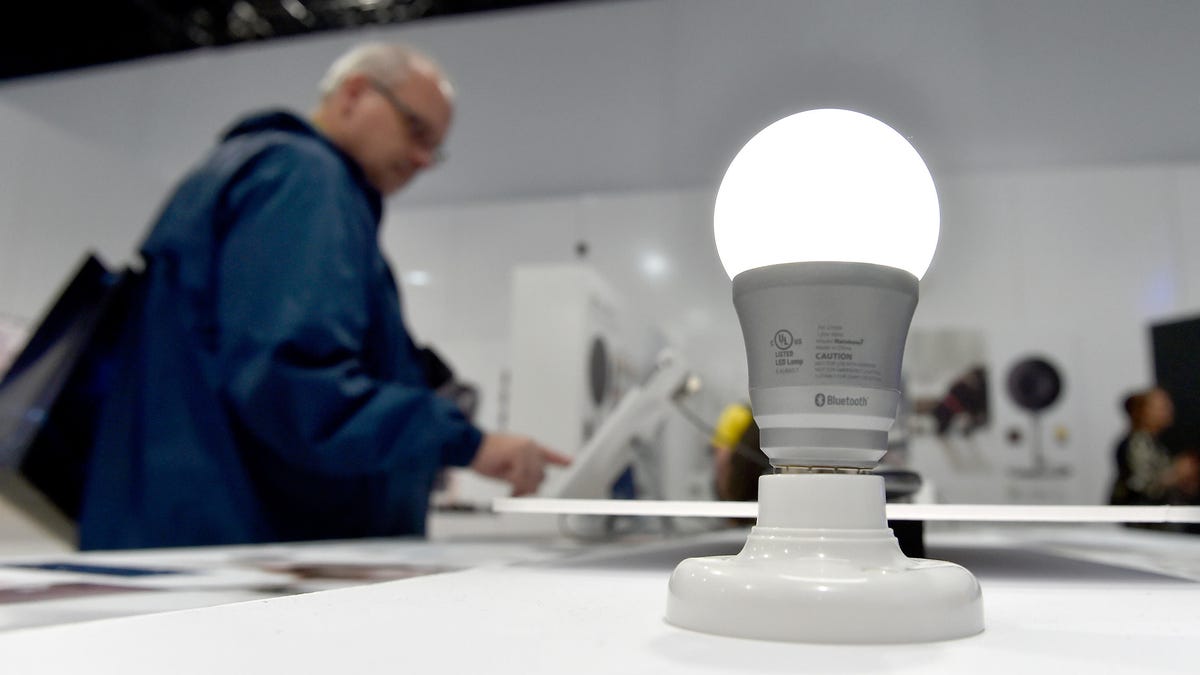Smart lightbulbs could be exporting your personal data to China
Even dimming your lights can reveal your location, according to a cybersecurity report.

Smart lightbulb at CES 2019.
Today, you can operate almost everything in your house from your phone. But, like most technology, nothing is perfect. While smart lightbulbs themselves aren't dangerous, the apps and platforms that control them might be.
Last month, Dark Cubed, an American cybersecurity company, released its State of IoT Security report and detailed potential security threats in smart home devices. Dark Cubed said it purchased several in-home smart devices that can be found at Walmart, Amazon , Best Buy or other stores and tested their security.
While the company said that it wasn't surprising that most of the apps weren't secure, the IoT (Internet of Things) lightbulbs were even worse. According to Dark Cubed, simply dimming your smart lightbulb could be enabling real-time location sharing.
"What was surprising was the fact that some of these devices, such as the IoT lightbulb, were so insecure that it is beyond what could be considered a mistake," Dark Cubed reported. "We found that the extent to which the manufacturers and infrastructure associated with these devices communicate with, or is related to, China is shocking and has significant national security implications."
The company also noted that while most IoT devices are manufactured in China, some of the tested devices and their companion apps were secure and didn't share data.
"Unfortunately, consumers have no ability to differentiate between the safe and the dangerous devices given the lack of focus on security by retailers," Dark Cubed said in its report.

